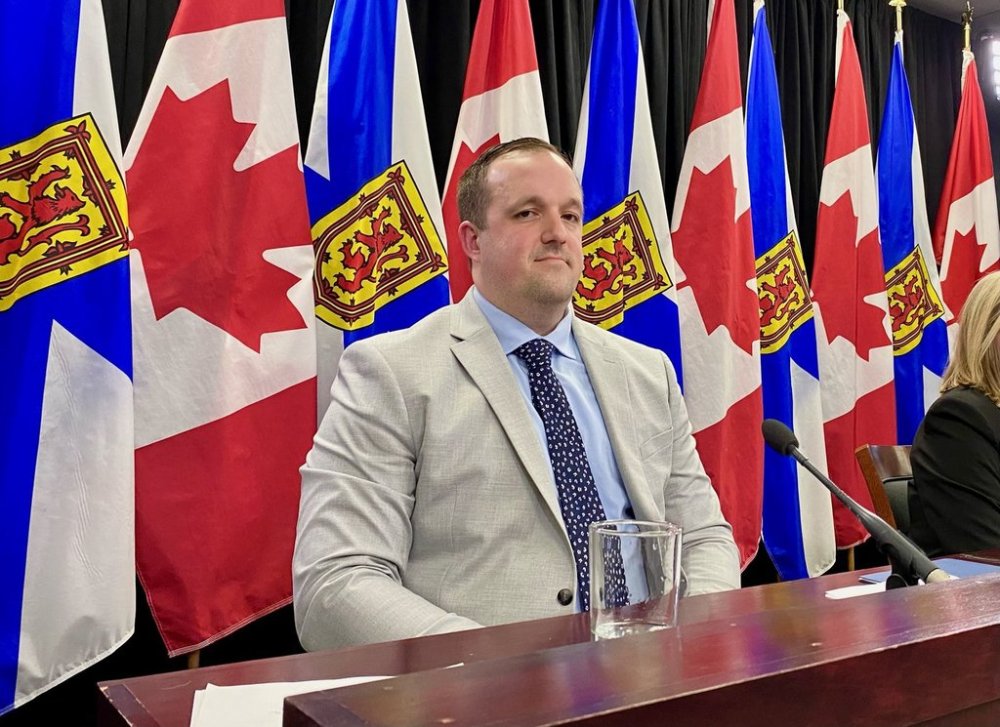Mental-health advocates say Nova Scotia is continuing to fall short on access to care
Advertisement
Read this article for free:
or
Already have an account? Log in here »
To continue reading, please subscribe:
Monthly Digital Subscription
$0 for the first 4 weeks*
- Enjoy unlimited reading on winnipegfreepress.com
- Read the E-Edition, our digital replica newspaper
- Access News Break, our award-winning app
- Play interactive puzzles
*No charge for 4 weeks then price increases to the regular rate of $19.00 plus GST every four weeks. Offer available to new and qualified returning subscribers only. Cancel any time.
Monthly Digital Subscription
$4.75/week*
- Enjoy unlimited reading on winnipegfreepress.com
- Read the E-Edition, our digital replica newspaper
- Access News Break, our award-winning app
- Play interactive puzzles
*Billed as $19 plus GST every four weeks. Cancel any time.
To continue reading, please subscribe:
Add Free Press access to your Brandon Sun subscription for only an additional
$1 for the first 4 weeks*
*Your next subscription payment will increase by $1.00 and you will be charged $16.99 plus GST for four weeks. After four weeks, your payment will increase to $23.99 plus GST every four weeks.
Read unlimited articles for free today:
or
Already have an account? Log in here »
HALIFAX – The Nova Scotia government says it’s making progress on improving public access to mental-health care, but advocates say the province is falling short.
Nova Scotia Premier Tim Houston promised universal mental-health care in his party’s 2021 campaign platform prior to a provincial election that first brought his Progressive Conservatives to power.
Houston’s 2021 pledge included a promise to spend an estimated $100 million per year so that registered psychologists, social workers and counselling therapists in Nova Scotia would be able to directly bill the province for patients seeking treatment.

Four years later, the Houston government has still not delivered on that mental-health care pledge, despite winning another election in 2024. But Brian Comer, minister of mental health and addictions, says the government’s goal of creating universal access to mental-health care remains unchanged.
“The goal remains the same as it did in 2021, to connect people to care faster, regardless of their ability to pay out of pocket. The delivery of universal access has been shaped based on input from the experts, including clinicians and our partners in health care,” the minister said in a statement to The Canadian Press.
Comer said the province has been making progress based on that feedback, and more people are being connected with mental-health services through the public-health system, community organizations and the private sector. A department spokesperson said it has put $136 million more into mental health and addictions services since 2022, and the office’s annual budget for the 2025-26 year is $364 million.
But Isaac Wright, a social worker who works with young Nova Scotians navigating the mental-health systems, said the province is nowhere near reaching its 2021 target.
“We are very, very far from hitting universal mental-health care,” he said in an interview Monday.
Alec Stratford, registrar of the Nova Scotia College of Social Workers, echoed Wright, saying adequate mental-health care remains inaccessible for too many Nova Scotians.
“The public system is still grossly underfunded … Our services are not meeting needs,” he said, adding that the province especially needs to boost support to community groups that provide specialized mental-health support for African Nova Scotians, Indigenous and LGBTQ+ people.
Stratford also noted that the Canadian Mental Health Association calls for governments to spend 12 per cent of their health budget on mental health in order to meet peoples’ need.
Nova Scotia is set to spend $5.97 billion in total health funding in the 2025-26 budget – the $364 million budgeted for mental-health care represents six per cent.
Comer noted in his statement that the province has created new support for youth and new recovery centres. It has also established a program for people with mood and anxiety disorders that has so far allowed more than 200 patients to book counselling through a private registered professional that is billed to the province.
“This is a real collaboration that helps more people access the right level of care at no cost to them. This is universal care,” Comer said in a statement.
This report by The Canadian Press was first published Nov. 18, 2025.

